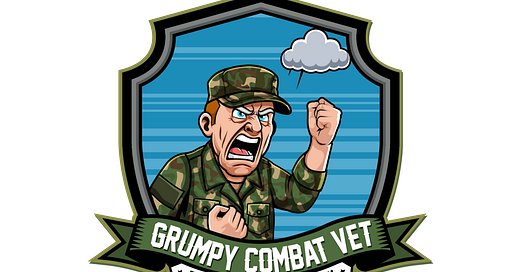Howdy,
Today is my birthday, so I can cry if I want to! 46 feels awfully good, I must admit. I’m not nearly as quick, fast, or strong as I used to be, but I feel wiser. That’s a very good thing. I’m truly blessed. I have a wonderful wife, a rambunctious daughter, a caring mother, a wonderful dog, and some fantastic friends. I write for The Bulwark, have …
Keep reading with a 7-day free trial
Subscribe to Grumpy Combat Veteran to keep reading this post and get 7 days of free access to the full post archives.


